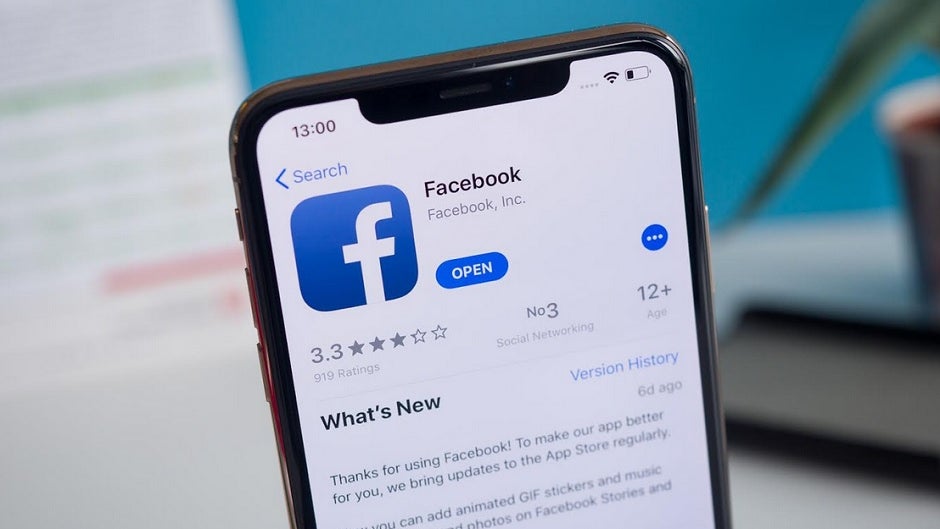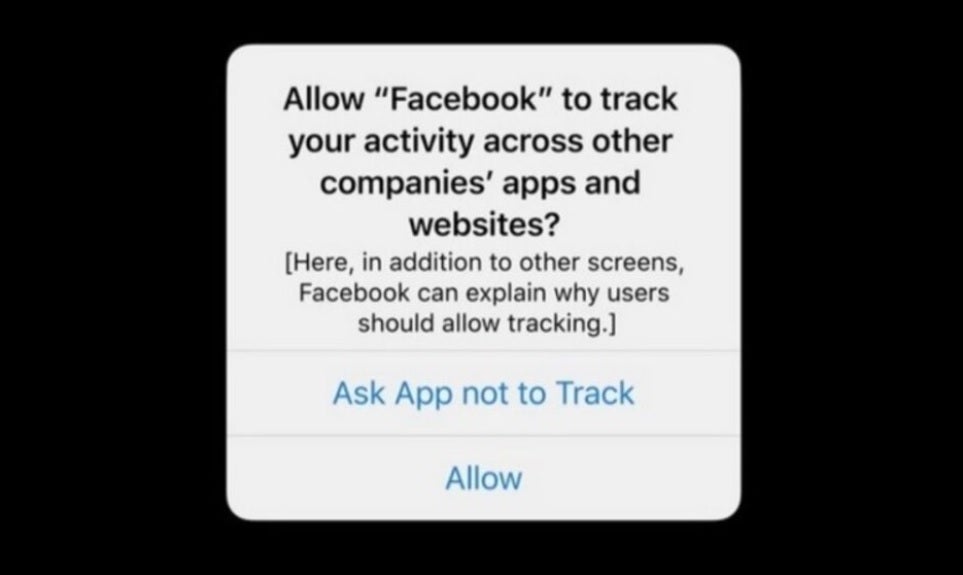Facebook appears to be using misleading data to attack Apple's new privacy feature

Starting with iOS 14.5, iPhone users will be asked to decide whether they want to opt-in to getting tracked by third-party apps. Allowing the trackers to do their thing means that when users do make a purchase online or merely visit an online store, they will get inundated with ads for related products on their phones and tablets. Facebook, which generated nearly $85 billion in ad revenue during the fourth quarter of last year, says that its advertising business could shrink by as much as 50% because of Apple's new feature. The social media network also claims to be concerned for small businesses that will be hurt if most iOS users, as expected, decide not to allow themselves to be tracked.
Facebook is manipulating the numbers to make it seem that Apple's new opt-in feature will kill small businesses.
Facebook has been giving evidence of the damage that Apple could do to small businesses by citing certain examples. However, a pair of marketing professionals have written a piece in the Harvard Business Review (via AppleInsider) claiming that this so-called evidence uses figures that have been "overstated," "cherry-picked," "misleading," and are part of a disinformation campaign."

Users of iOS will have to opt-in to be tracked by third-party apps
For example, Facebook claimed in a full-page newspaper ad that "Without personalized ads, Facebook data shows that the average small business advertiser stands to see a cut of over 60% in their sales for every dollar they spend on ads." However, as marketing pros Bart de Langhe and Stefano Puntoni wrote in the Harvard Business Review, this data is misleading because Facebook bases the data on a metric known as ROAS or return on ad spend. The information this provides is the amount of revenues associated by advertising as opposed to the amount of revenue caused by advertising. If certain consumers were going to make purchases anyway, their spending is not caused by the advertising and the resulting decline would be less than 60%. As the two marketing pros wrote, "The problem with the 60% figure is that Facebook doesn’t report anything about the two kinds of campaigns it was comparing. For all we know, they might involve different industries, different companies, different products, different times, different places — and if they did, then Facebook’s comparison wouldn’t mean much. In fact, it might just show that companies who knew their customers well achieved a higher return on advertising spend than companies that didn’t."
Besides the above example, Facebook also incorrectly repeated certain figures. For example, Facebook posted on its website and in its ads that "Forty-four percent of small to medium businesses started or increased their usage of personalized ads on social media during the pandemic, according to a new Deloitte study." But that figure was misleading; the authors looked at Deloitte's numbers which included the percentage increase in targeted advertising on social media for companies in nine industries. Telecom and Technologies had the largest increase at 34%. Facebook's figure of 44% was not only overstated, the industry that Facebook chose to use was the one best suited to fit its argument.
Let's examine this again. Facebook said, "Forty-four percent of small to medium businesses started or increased their usage of personalized ads on social media during the pandemic." If you read this without double checking the figure, you'd believe that Apple's new opt-in policy on targeted ads was affecting as much as 44% of small and mid-sized businesses. However, as noted above, the largest industry increasing its targeted advertising during the pandemic was Telecom and Technologies with a 34% hike. As de Langhe and Puntoni wrote, "Facebook, it seems, cherry-picked the data that best supported its case, and then increased the size of the cherries it picked by a third."
The authors say that they are not trying to dismiss the concerns that small businesses have over Apple's new privacy policy. However, "Under Apple’s new plan, companies will have to explain their data-collection practices when submitting new apps or making updates, and many users won’t give permission to have their behavior tracked online. Facebook says it wants to stand up for small businesses in the face of these changes, which it is perfectly entitled to do. But disinformation about advertising effectiveness isn’t the way to do that."
Follow us on Google News












Things that are NOT allowed:
To help keep our community safe and free from spam, we apply temporary limits to newly created accounts: